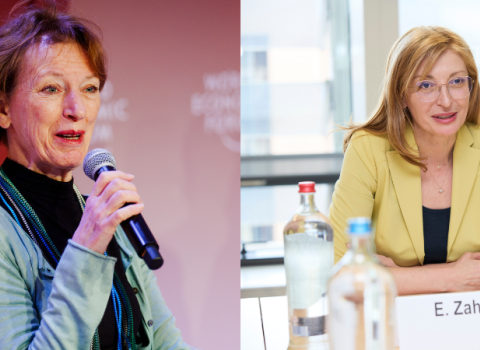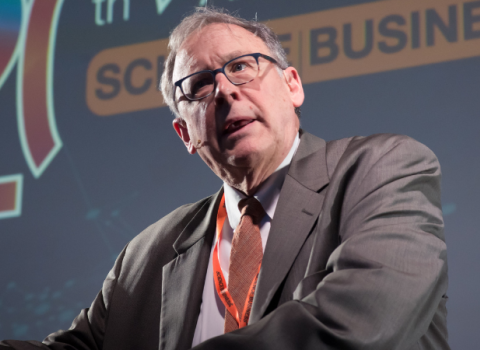A Science|Business public webinar (15:00 – 16:00 CEST | 9:00 – 10:00 EDT)
Donald Trump’s second presidency is wreaking havoc on international relations – and the world of science and technology has not been spared. In the US, in the space of just a few weeks, research funding has been cut, public access to research data on ideologically sensitive topics such as climate, vaccines and gender has been limited, while the Trump administration has increased pressure on scientists on ideological grounds. As budget cuts, visa restrictions and tough security hit American academia, global cooperation in climate, health and other politically charged fields will undoubtedly diminish.
Meanwhile, Europe is scrambling to attract disgruntled scientists from the US, with universities putting up dedicated funding schemes and EU funding agencies expanding benefits for foreign researchers who want to move to Europe. In March, 13 EU member states urged the European Commission to explore options for US-based researchers to continue their work in Europe. More broadly, with the trade war in the background, transatlantic research collaborations are being disrupted and European leaders are rethinking their strategies for US collaboration.
In this context, Science|Business is organising a webinar to discuss the future of transatlantic science collaboration and how the EU should respond to Trump’s policies in science. What is the impact of the Trump administration on US science and international research collaboration? What should be the response from the US academic community? Should Europe try to specifically attract US researchers? Can Europe absorb fired US researchers, and can Europe even guarantee academic freedom?
Panel discussion featuring:
- Cole Donovan, Former official, White House Office of Science and Technology Policy
- Erica Goldman, Director of Day One and Policy Entrepreneurship, Federation of American Scientists
- Denis Bertin, Vice-President, AMIDEX Foundation, Aix-Marseille Université
Moderated by David Matthews, International Editor, Science|Business
 | Cole Donovan, Former official, White House Office of Science and Technology Policy Cole Donovan is associate director for science and technology ecosystem development at the Federation of American Scientists since May 2025. He previously served in the White House Office of Science and Technology Policy as assistant director for international science and technology and assistant director for research security and infrastructure. Earlier, he was an international affairs specialist at the Office of Space Commerce, focusing on the European Union, the Asia Pacific region, and advanced technology governance. Before joining government, he worked at the National Academies of Sciences, Engineering, and Medicine and at the US State Department, covering major research infrastructures and international science policy. He co-chaired several National Science and Technology Council subcommittees and led negotiations of multilateral science and technology agreements. He holds degrees from St. John’s College and the University of Maryland and began his career working on amateur communications satellites at the US Naval Academy’s satellite ground station.
|
 | Erica Goldman, Director of Day One and Policy Entrepreneurship, Federation of American Scientists Erica Goldman is director of Day One and policy entrepreneurship at the Federation of American Scientists, where she is part of the leadership team. She oversees policy entrepreneurship efforts and leads portfolios that embed science, technology, innovation and experience into government and public discourse to support a healthy, safe, prosperous and equitable society. With over 20 years of experience at the intersection of science and policy, she has held roles on Capitol Hill and at the White House Council on Environmental Quality. She holds a PhD in biology from the University of Washington and a bachelor's degree in science from Yale University.
|
 | Denis Bertin, Vice-President, AMIDEX Foundation, Aix-Marseille Université Denis Bertin is vice-president of the AMIDEX Foundation at Aix-Marseille Université and professor at the Faculty of Sports Science. He created the Hipe Human Lab in 2024, a research unit dedicated to sport sciences. He previously served as vice-chancellor for research at AMU and spent 14 years at the Faculty of Science, where he developed a joint academic–industrial research group in material sciences. He began his career as a research and development engineer at TOTAL after earning a PhD in polymer science from the University of Montpellier II in 1997. His research focuses on nanostructured organic materials with applications in health, environment, energy and sport. He is the author of over 170 publications (H-index 44), co-inventor of 33 patents, and principal investigator on several research projects. Around 10 of his patents are commercially exploited by companies such as ARKEMA, HILTI, HENKEL, and start-ups including Innoya and V8 Equipment. |







 A unique international forum for public research organisations and companies to connect their external engagement with strategic interests around their R&D system.
A unique international forum for public research organisations and companies to connect their external engagement with strategic interests around their R&D system.